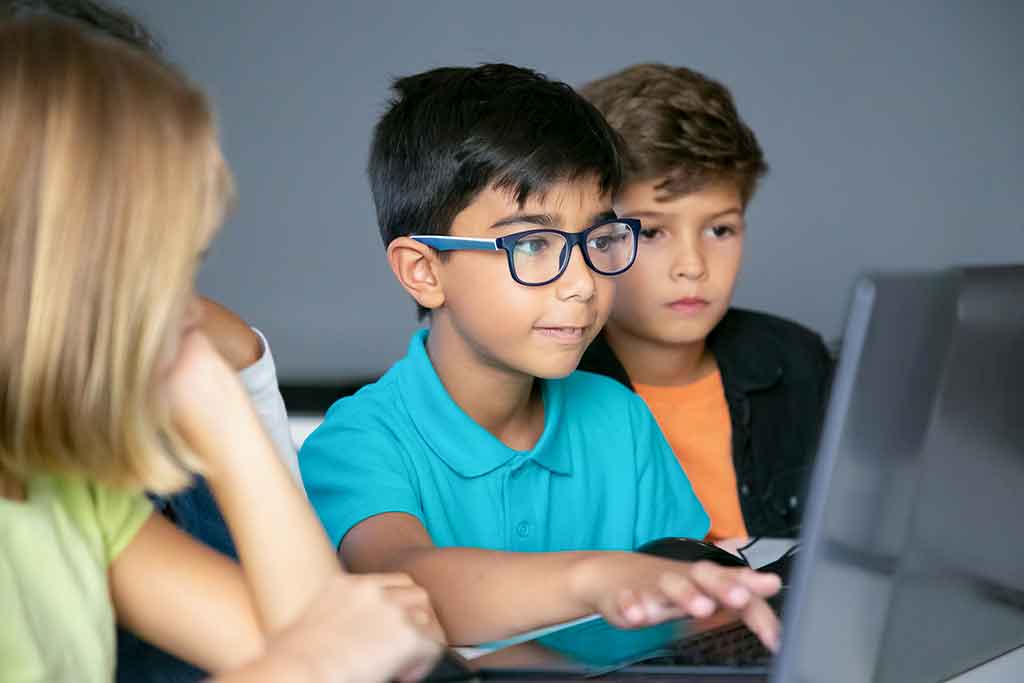Now Reading: So, What Exactly is a Parenting Education Program?
-
01
So, What Exactly is a Parenting Education Program?
So, What Exactly is a Parenting Education Program?

Parenting education programs are structured courses that equip caregivers with knowledge and skills for raising children. Covering topics from child development to positive discipline, they build confidence and stronger family bonds, benefiting parents at any stage of their journey.
Of all the journeys we embark on in life, parenting is perhaps the most significant, and yet, it’s the one for which we receive the least formal training. We don’t expect to become a surgeon, an engineer, or a mechanic without education and guided practice. Yet, when we bring a new life into the world, we are often handed a tiny human and sent home with a wave and a “good luck.” It’s no wonder that so many parents feel overwhelmed, isolated, and unsure of themselves.
This is precisely where parenting education programs come in. Think of them as a helpful guide, a supportive community, and a practical toolkit all rolled into one. They are designed to empower parents and caregivers with the knowledge, skills, and confidence they need to navigate the beautiful, chaotic, and incredibly important job of raising children.
In simple terms, a parenting education program is a structured course or series of sessions that provides parents with information and training on child development and effective parenting techniques. It’s not about telling you that you’re doing things wrong. Quite the opposite. It’s about building on your natural instincts and strengths, filling in the knowledge gaps, and giving you a set of proven tools to handle the challenges that inevitably arise.
These programs are not a one-size-fits-all lecture. They are collaborative, often involving discussions, activities, and real-life scenarios. They cover a wide range of topics, from understanding your child’s brain development to managing tantrums, communicating effectively with your teenager, and creating a nurturing and supportive home environment. The goal is not to create “perfect parents” but to create confident, capable parents who can build strong, healthy relationships with their children.
The Core Goals: What Do These Programs Aim to Achieve?
Parenting education programs are built on a foundation of several key goals that benefit both the parent and the child. At their heart, they strive to shift the focus from simply controlling behavior to understanding and guiding the whole child.
One of the primary goals is to strengthen the parent-child bond. Programs teach parents how to be attuned to their children’s emotional needs, how to communicate with love and respect, and how to create a secure attachment. This strong bond is the bedrock upon which a child’s sense of security, self-worth, and future relationships are built.
Another crucial goal is to promote healthy child development. Parents learn about the physical, emotional, social, and cognitive milestones their children should be reaching at different ages. This knowledge helps parents have realistic expectations and provides the right kind of support and stimulation to help their children thrive.
Furthermore, these programs aim to teach positive discipline strategies. This is a big one. It moves away from punitive measures like yelling or spanking and towards methods that teach children self-control, responsibility, and problem-solving. Parents learn how to set clear and consistent limits, use natural and logical consequences, and guide their children’s behavior in a way that is firm yet kind.

Who Can Benefit from a Parenting Program?
There is a common misconception that parenting programs are only for parents who are “struggling” or in crisis. This could not be further from the truth. While they are incredibly valuable for families facing specific challenges, they are beneficial for all parents.
First-time parents are perhaps the most obvious beneficiaries. Stepping into the unknown world of parenthood is daunting. A parenting program can be a lifeline, offering evidence-based information and a supportive community of other new parents who are going through the same experiences.
Parents of children going through a tough transition, such as the arrival of a new sibling, a divorce, a move, or the challenging teenage years, can find immense value. These programs provide specific strategies for navigating these turbulent times and maintaining a strong connection with your child.
Even experienced parents can gain a fresh perspective. What worked with your first child might not work with your second. The challenges of parenting a teenager are vastly different from those of parenting a toddler. A parenting program can offer new tools and refresh your approach, helping you adapt to the ever-changing needs of your growing child.
In short, any parent who wants to improve their skills, deepen their connection with their child, and feel more confident in their role can benefit from these programs. It is a sign of strength, not weakness, to seek out resources and support.
A Look Inside the Toolkit: Common Topics Covered
While the specific curriculum varies from program to program, most cover a set of fundamental topics that are essential for effective parenting.
Understanding Child Development and Brain Science. Many programs start by explaining what is happening inside a child’s brain at different stages. Learning that a toddler’s tantrum is often a result of an underdeveloped prefrontal cortex—not just defiance—can completely change how a parent responds. This knowledge fosters empathy and patience.
Effective Communication and Active Listening. Parents learn how to talk with their children, not just at them. This involves skills like validating feelings, using “I” statements, and truly listening without immediately jumping in to solve or dismiss a problem. This builds trust and opens the lines of communication, which is especially vital during the teenage years.
Positive Discipline and Setting Boundaries. This module moves beyond punishment. Parents learn how to set clear, age-appropriate rules and follow through with consistent, related consequences. For example, if a child makes a mess, the logical consequence is to help clean it up, rather than losing screen time. This teaches responsibility instead of resentment.
Emotional Coaching and Nurturing Resilience. Children need help understanding and managing their big emotions—anger, sadness, frustration. Parenting programs teach parents how to be “emotional coaches,” helping their children name their feelings and develop healthy coping mechanisms. This is the foundation for building resilient adults who can handle life’s ups and downs.
Promoting Self-Care for Parents. A burned-out, stressed-out parent cannot be a patient, present parent. Good programs emphasize the importance of parents taking care of their own physical and mental well-being. They teach that filling your own cup is not selfish; it’s essential for being the parent you want to be
Finding the Right Program for Your Family
The world of parenting education is diverse, with programs available in various formats to suit different needs and lifestyles. You can find in-person group classes at community centers, schools, or hospitals, which offer the bonus of building a support network with other parents. There are also online courses and webinars that provide flexibility for busy schedules. For more personalized support, some families may opt for one-on-one coaching with a parenting educator.
When looking for a program, consider the age of your child, your specific challenges, and your parenting philosophy. Look for programs that are evidence-based, meaning their methods are backed by research in child development and psychology. The best program for you is one that feels respectful, practical, and aligns with your values.
The Ripple Effect: Why Investing in Parenting Education Matters
Investing in parenting education creates a powerful ripple effect that extends far beyond the walls of the family home. When parents are equipped with knowledge and skills, they raise children who are more emotionally intelligent, empathetic, and resilient. These children are better equipped to do well in school, form healthy friendships, and contribute positively to their communities.
By reducing the use of harsh parenting practices, these programs also play a vital role in preventing child abuse and neglect. They strengthen families, reduce parental stress, and create a more nurturing environment for children to grow. In the long run, this investment in parents is an investment in the future well-being of our entire society.
Parenting is not a test you have to pass alone. It is a journey of continuous learning and growth, for you and your child. A parenting education program is simply a compass for that journey—a tool to help you find your way, build a deeper connection, and enjoy the ride with more confidence and joy. It is a gift you give to yourself and, ultimately, to your child.
Stay Informed With the Latest & Most Important News
Previous Post
Next Post
-
 01Does Free Money Exist? The Real Story of How Your Passive Income Gets Taxed in India
01Does Free Money Exist? The Real Story of How Your Passive Income Gets Taxed in India -
 02Your Journey to Financial Freedom: A Simple Guide to Building Passive Income in India
02Your Journey to Financial Freedom: A Simple Guide to Building Passive Income in India -
 03Beyond the First Rupee: Building Your Personal System for Passive Income Success in India
03Beyond the First Rupee: Building Your Personal System for Passive Income Success in India -
 04Your Extra Income Journey: Top Side Hustles to Boost Your Earnings in India
04Your Extra Income Journey: Top Side Hustles to Boost Your Earnings in India -
 05The Right Way for Kids to Learn Technology: A Guide for Indian Parents
05The Right Way for Kids to Learn Technology: A Guide for Indian Parents -
 06A New World at Your Fingertips: A Simple Guide to Technology Tutorials for Seniors
06A New World at Your Fingertips: A Simple Guide to Technology Tutorials for Seniors -
 07Your Guide to Learning Technology in 2025: Simple, Smart, and Effective
07Your Guide to Learning Technology in 2025: Simple, Smart, and Effective






























